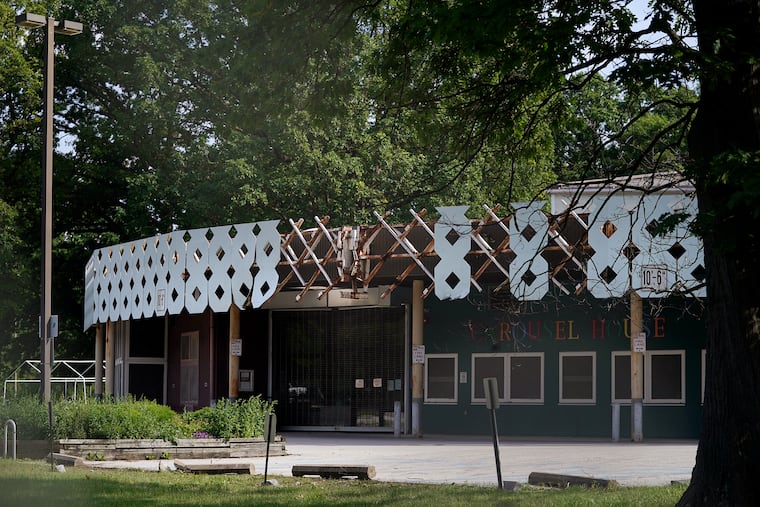All city rec centers should serve people with disabilities | Opinion
We’re picking the wrong fight over Carousel House.

On Tuesday, Billy Penn reported that Philadelphia Parks and Recreation was considering demolition of Carousel House, a beloved recreation center that historically served only people with disabilities, prompting outcry on social media. While there is no question that Carousel House provided a safe space for people with physical disabilities and intellectual disabilities, we should question why, for over 30 years, Philadelphians with disabilities were historically directed to just one recreation center.
In 2018, a disability-rights activist named Fran Fulton posed that very question to Commissioner Kathryn Ott Lovell and then Rebuild Executive Director Nicole Westerman during a summit with disability advocates. When Commissioner Ott Lovell announced plans to invest $1 million to renovate Carousel House, Fulton reflected on Carousel House as a painful reminder of how disabled people were historically excluded and segregated. Fulton challenged Commissioner Ott Lovell to use the funds to make all recreation centers accessible.
Commissioner Ott Lovell spoke about that pivotal moment when her perspective shifted. She made a promise to listen and learn from diverse disability stakeholders. For two years, I helped organize an inclusion pilot work group that worked closely with Parks and Recreation staff to address programmatic accessibility. The Eagles Autism Foundation, with then-Sixers coach Brett and Anna Brown, hosted a daylong summit where several hundred PPR staff participated in a training I developed with rec leaders, Professor Roger Ideishi, Art-Reach, Arc of Philadelphia, Special Olympics Philadelphia, Carousel Connections, PHMC, and Jefferson. In 2020, PPR issued an RFP to fund a system-side inclusion strategy plan.
Signed into law in 1990, the Americans with Disabilities Act (ADA) prohibits discrimination against individuals with disabilities in all areas of public life, including jobs, schools, transportation, and places that are open to the public. Last December, nearly 30 years after the ADA became law, the city published its final ADA Transition Plan, detailing its assessment of city-owned facilities, including over 496 Parks and Recreation and Rebuild sites.
According to the Trust for Public Lands, 95% of Philadelphians live within a “10 minute walk of a park.” Sadly, the city’s ADA plan finds that only 55 city-owned sites were ADA compliant. The plan details a litany of noncompliance issues, including noncompliant restrooms, play equipment, ramps, signage, and uneven surfaces and paths of travel. Getting to these sites remains a challenge as well: Disabled residents recently sued the city over its broken pavements, curb cuts, and crosswalks. In a city with the highest disability rate among the largest U.S. cities, these barriers to inclusion are unacceptable.
COVID-19′s disproportionate impact on disabled people, including Black, Latinx, and AAPI people, has left communities of color with long-term disabilities. We know that parks and public spaces are vital to restoring health and wellness to our communities. Mayor Kenney’s proposed FY2022 budget rightly restores funding to Parks and Recreation, an agency that has long experienced systemic disinvestment and neglect. Without additional funding, however, I worry that the city will not meet its goal of ADA compliance by 2028.
We cannot achieve equity without ensuring full inclusion and participation for all, including our disabled residents. In addition to these renovations, our Parks and Recreation systems need adequate staffing and training to provide meaningful access for people with diverse disabilities, including people who are deaf, blind, or have cognitive, sensory, and mental health disabilities. I invite leaders and advocates to work with the disability community to ensure that residents in every neighborhood have access to accessible spaces, well-trained staff, and inclusive programming.
Anna Perng is a disabled advocate and cofounder of the Chinatown Disability Advocacy Project. She serves on the Mayor’s Commission on People with Disabilities.